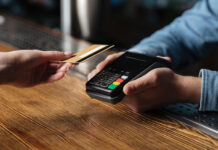Managing an online investment account efficiently and securely is paramount for investors. Keeping your financial information safe is of the utmost importance in this age of convenient online trade. Adopting a few best practices lets you trade confidently, knowing your investments are secure. By prioritising security, you can focus on growing your portfolio without unnecessary worries about cyber threats.
Securing your trading account involves more than just setting a strong password. It requires a comprehensive approach to online security, including staying vigilant against phishing attempts, using robust security measures, and regularly monitoring your account activity. Here are some valuable tips to help you manage your account securely and effectively.
Use Strong, Unique Passwords
The first line of defence for any online account is a strong password. Ensure your password is unique and not used for other online services. Combining uppercase and lowercase letters, symbols, and names is the best way to create a secure password. Do not use birthdays, common words, or other easily guessed information. Make sure to change your password often, and consider utilising a trustworthy password manager to track your credentials safely.
Enable Two-Factor Authentication (2FA)
Two-factor authentication (2FA) provides an additional safeguard. It usually requires your password and a verification code delivered to your phone or email. Turning on 2FA makes your account less vulnerable to hacking, even if someone gets their hands on your password.
Be Wary of Phishing Scams
Phishing scams are a standard method cybercriminals use to access personal information. Be cautious of emails, messages, or websites that ask for your details or personal information. Always verify the authenticity of any communication that claims to be from your brokerage or financial institution. Look for signs of phishing, such as misspelt words, generic greetings, and suspicious links. Never open an attachment or click on a link from an unknown or untrusted source.
Regularly Monitor Your Account Activity
Be vigilant in monitoring your account to prevent any suspicious activity from escalating. To verify the legitimacy of any trades or withdrawals, you should frequently review your account statements and transaction history. Set up account alerts to get notified if there are significant changes or transactions. Immediately secure your account and notify your broker of any suspicious behaviour.
Keep Your Software and Devices Updated
The best way to keep your devices and software secure is always to use the most recent versions. Keep your software up-to-date, including your OS, browser, and trading or financial apps. Essential security patches that fix vulnerabilities are also a standard component of these releases. Protect your devices from harmful threats by using trustworthy antivirus and anti-malware programmes. Also, turn on automatic updates whenever possible to ensure you don’t miss any critical security updates.
Use Secure Networks
Avoid accessing your trading account over public or unsecured Wi-Fi networks. These networks are often less secure and can be easily intercepted by cybercriminals. Instead, use a safe, private network or a virtual private network (VPN) when trading online. A VPN encrypts your internet connection, providing additional security and privacy.
Log Out After Each Session
Always log out when finished, especially using a shared or public computer. Simply closing the browser window is not enough; log out properly to prevent unauthorised access. This practice is a simple yet effective way to secure your account from potential threats.
Managing a trading account is essential for protecting your investments and personal information. Implementing these practices will help you trade with peace of mind, knowing that your financial data is well-protected. Protecting your assets from cyber attacks requires a proactive security strategy that can prevent breaches.
Disclaimer: This article contains sponsored marketing content. It is intended for promotional purposes and should not be considered as an endorsement or recommendation by our website. Readers are encouraged to conduct their own research and exercise their own judgment before making any decisions based on the information provided in this article.




































































